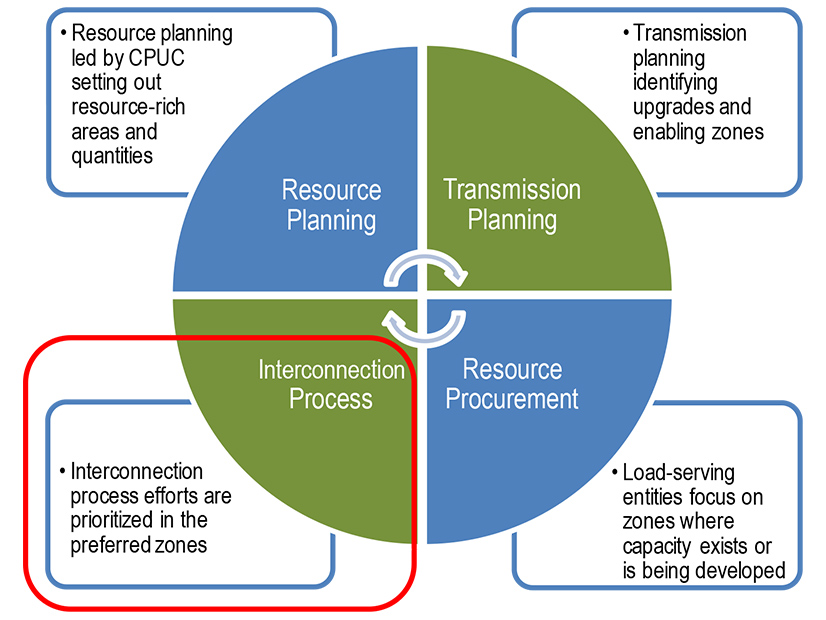
FERC on March 29 approved CAISO’s request to forgo this year’s process for taking interconnection applications, giving the ISO more time to study last year’s record-breaking number of requests (ER24-1213).
FERC’s order became effective March 31, just ahead of the April 1 deadline CAISO is required to meet each year to open a new interconnection window, which kicks off a two-year cluster study process.
CAISO sought the tariff change to extend study deadlines for Cluster 14 and pause Cluster 15 because of the “unprecedented increase” in new interconnection requests received for those clusters combined with a lower percentage of interconnection customers withdrawing after Phase one of the process. (See CAISO Seeks FERC’s OK to Shut 2024 Interconnection Window.)
The rule revision will help CAISO “avoid compliance issues, the need for waiver or exacerbating the queue’s challenges before CAISO can comply with Order No. 2023 and implement needed reforms,” the order states. “Further, CAISO contends that forgoing the 2024 interconnection request window will allow sufficient time to study existing interconnection requests.”
Stakeholder Concerns
In comments submitted to FERC, several stakeholders said closing the 2024 interconnection window would affect much-needed resource procurement and fail to address the root causes of the clogged queues.
While the Northern California Power Agency did not oppose the move, it did note that the backlog is particularly problematic for load-serving entities that will struggle to acquire the clean resources needed to meet procurement mandates without sufficient projects coming online in a timely manner.
The Six Cities group of Southern California municipal utilities opposed the move, saying that while CAISO remains engaged in the Interconnection Process Enhancements stakeholder initiative, delaying the request window will cause a gap in implementing necessary reforms.
“Six Cities contend that the elimination of the 2024 interconnection request window should not be permitted to prolong the gap in making these necessary changes to the process,” the order noted.
Six Cities also acknowledged the challenge of bringing new resources online amid the delay. FERC noted the utilities said “they have experienced considerable challenges in procuring capacity to meet reliability requirements during the past two years.”
CAISO asked the commission to disregard those concerns due to “meaningful progress” made in its stakeholder initiative and highlighted that it will propose significant reforms to the process when the ISO submits its compliance filing for Order 2023, expected April 3.
FERC agreed with CAISO, saying the stakeholder comments fell “outside of the scope” of the proceeding.
“We agree with CAISO that its proposed revision will enable CAISO to work with stakeholders to develop and implement meaningful reforms for processing Cluster 15 and will avoid exacerbating the queue’s challenges,” FERC said. “Further, we find that forgoing the 2024 interconnection request window is a just and reasonable solution to prioritize the significant volume of existing interconnection requests in a timely manner.”


